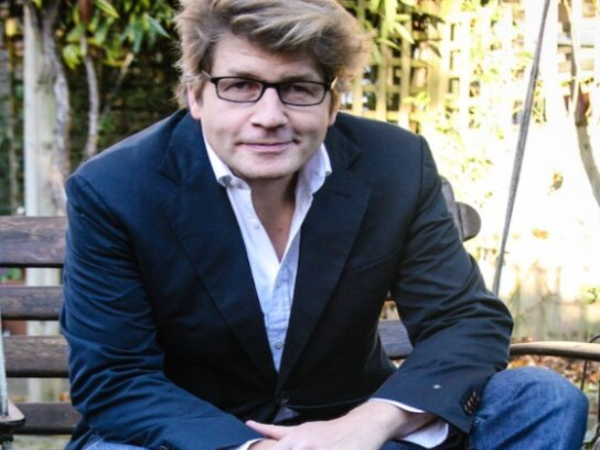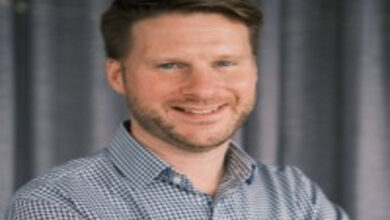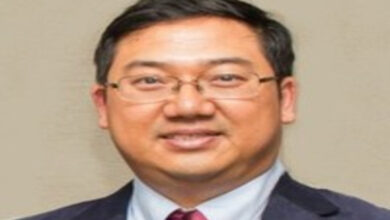Leo Johnson: Renowned Economist, Sustainability Expert, and Influential Thought Leader
Exploring the Life, Career, and Legacy of Leo Johnson in Environmental Economics and Business Sustainability

Leo Johnson is a distinguished economist and sustainability expert known for his impactful work in environmental economics and sustainable business practices. Serving as a lecturer at the University of Oxford’s Smith School of Enterprise and Environment, Leo combines academic rigor with real-world insights. He has contributed significantly to shaping sustainability policies and advancing the integration of environmental considerations into corporate and financial sectors. Additionally, he is widely recognized as the brother of former UK Prime Minister Boris Johnson.
Introduction: Who Is Leo Johnson?
Leo Johnson stands out as one of the most influential figures in sustainability and environmental economics today. As a lecturer at the prestigious University of Oxford and a seasoned advisor in the business and finance sectors, he bridges the gap between theory and practice. His career is marked by a dedication to driving change toward a low-carbon, sustainable economy. Beyond his professional accomplishments, Leo Johnson also gains public interest as the brother of Boris Johnson, the former Prime Minister of the United Kingdom. This article dives deep into his background, career, contributions, and personal life.
Early Life and Education of Leo Johnson
Leo Johnson was born into a notable family known for its involvement in British politics and media. While the exact year of his birth is not publicly documented, estimates suggest he is in his early to mid-50s as of 2025. Raised alongside his siblings, including Boris Johnson, Leo developed an early interest in economics and environmental issues.
His academic journey is impressive and diverse. He completed his undergraduate degree at the University of Oxford, where he laid the foundation for his understanding of economics and environmental studies. Later, he earned a Master of Science degree in Environmental and Resource Economics from University College London (UCL), further specializing in sustainability. To broaden his expertise in business, Leo also obtained an MBA from INSEAD, one of the world’s leading business schools. This blend of environmental science and business education has uniquely positioned him to influence both academia and corporate strategy.
Career Highlights: From Academia to Advisory Leadership
Leo Johnson’s career spans academia, corporate advisory, and international development. Currently, he lectures on the M.Sc. program in Sustainability, Enterprise, and Environment at Oxford’s Smith School, where he mentors the next generation of sustainability leaders.
Before returning to academia, Leo co-founded Sustainable Finance, a firm focused on embedding environmental and social governance (ESG) into financial markets. This company was later acquired by PwC, a global professional services giant, where Leo led innovation and disruption initiatives. His leadership at PwC helped shape how businesses approach sustainability as a core element of strategy rather than a peripheral concern.
Internationally, Leo has worked with the International Finance Corporation (IFC) of the World Bank Group. His efforts in implementing the Equator Principles—a risk management framework for environmental and social risk in projects—earned him recognition and an IFC Corporate Award. These accomplishments demonstrate his commitment to practical, impactful change in sustainability.
Publications and Media Presence
Leo Johnson is not only a practitioner but also an author and media contributor. He co-authored the book Turnaround Challenge: Business and the City of the Future, which critiques traditional capitalism and proposes a transformative approach that aligns economic growth with social and environmental well-being.
His expertise has been sought after by major media outlets. He has presented multiple series on BBC Radio 4, including FutureProofing, Hacking Capitalism, and Hacking Happiness, exploring how society can innovate to overcome environmental and social challenges. He also writes columns for respected publications such as the Financial Times and Wall Street Journal.
Additionally, Leo co-founded the Prix Pictet, a prestigious global photography prize focused on sustainability themes, further blending culture and environmental advocacy.
Leo Johnson’s Family: The Johnson Dynasty
Leo Johnson comes from a family with a significant public profile. His brother, Boris Johnson, served as the UK Prime Minister from 2019 to 2022 and is a well-known political figure internationally. Their family is known for its involvement in politics, journalism, and public service. Despite this, Leo has maintained a distinct and largely apolitical career path, focusing on sustainability and economics rather than political office.
Details about Leo’s immediate family and personal life remain relatively private compared to his brother’s highly public political career. This privacy reflects Leo’s preference for a quieter, less public personal life.
How Old Is Leo Johnson? Understanding His Age
While Leo Johnson’s exact date of birth is not widely publicized, he is estimated to be in his early to mid-50s as of 2025. His age aligns with the timeline of his education and professional milestones, which have spanned over two decades in academia and industry.
Leo Johnson’s Net Worth: An Overview
Public information about Leo Johnson’s net worth is limited, as he maintains a low public profile compared to some of his family members. However, considering his senior roles at PwC, successful entrepreneurial ventures like Sustainable Finance, and his academic positions, it’s reasonable to estimate that his net worth is in the multi-million dollar range. His work with high-profile institutions and advisory roles further add to his financial standing.
The Impact of Leo Johnson in Environmental Economics and Sustainability
Leo Johnson has played a critical role in advancing sustainability within business and finance. By integrating environmental considerations into financial decision-making, he has helped organizations shift towards more responsible and sustainable practices.
His efforts have contributed to a broader cultural change in how sustainability is perceived—from a niche concern to a fundamental business imperative. This shift is evident in the growing number of companies adopting ESG principles, carbon reduction commitments, and transparent sustainability reporting.
Leo Johnson’s Role at the University of Oxford’s Smith School
At Oxford, Leo is more than a lecturer; he is a mentor and thought leader shaping sustainability curricula. His courses emphasize practical applications of environmental economics and sustainable enterprise. He also collaborates with researchers and students to promote interdisciplinary approaches to global environmental challenges.
The Smith School itself is a hub for sustainability research, and Leo’s involvement ensures that its programs remain relevant and impactful in a rapidly changing world.
Future Prospects and Continuing Influence
Looking ahead, Leo Johnson is expected to remain a key voice in sustainability and environmental economics. With climate change and sustainable development at the forefront of global priorities, experts like Leo are critical to guiding policy and business transformation.
He is likely to continue influencing both public discourse and practical solutions through his academic work, advisory roles, and media presence.
Conclusion
Leo Johnson exemplifies the modern sustainability leader—combining deep academic knowledge, practical business experience, and public engagement. His work at Oxford, alongside his advisory roles and media contributions, places him at the intersection of environmental economics, business innovation, and social impact. Despite the public spotlight on his family, Leo has carved out a unique path dedicated to building a more sustainable and equitable future.



